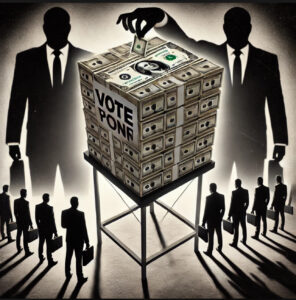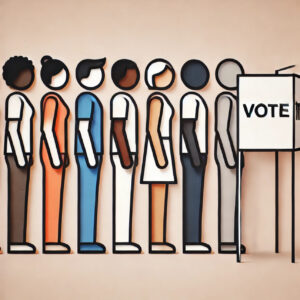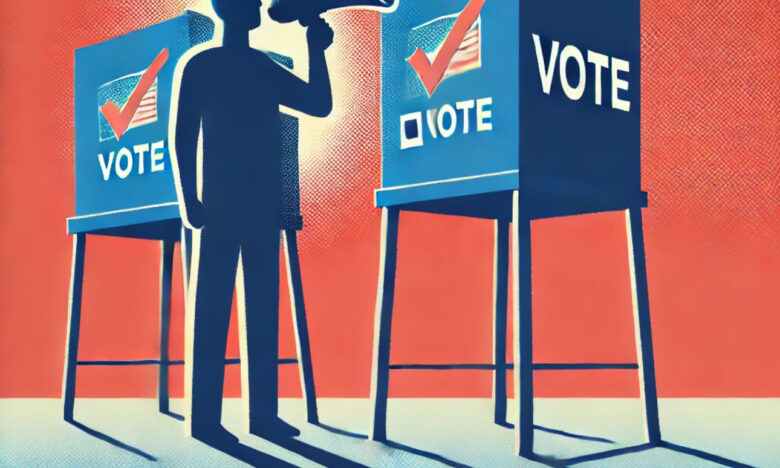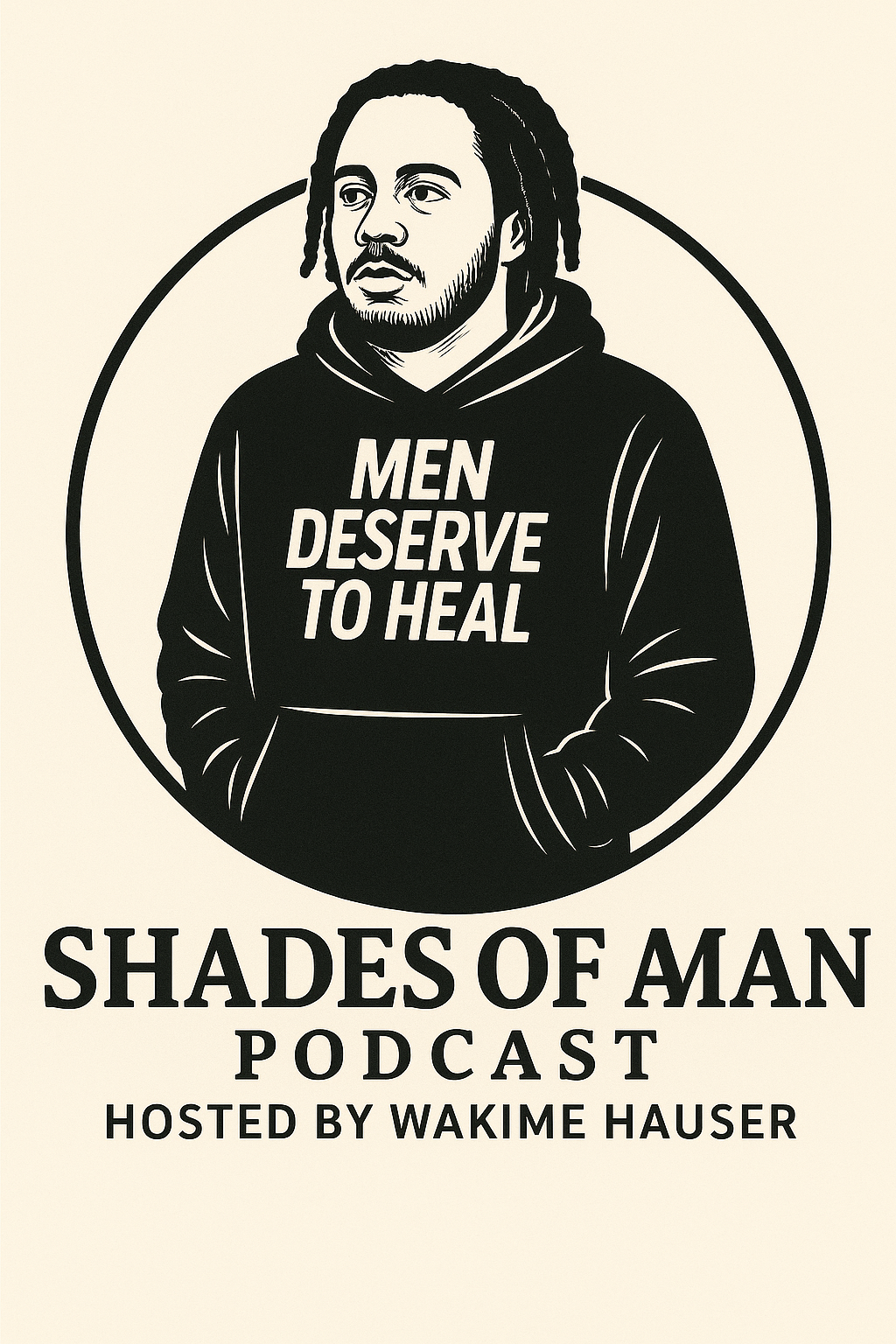Your vote is NOT your voice!
We’ve all been told that voting is the cornerstone of democracy, that our vote is our voice, and that every vote counts. But the truth is, when you’re an independent thinker, it becomes pretty clear that not every vote truly represents every voice. The system is designed in a way that favors those with money and power, leaving the rest of us to question if our voice really matters in the grand scheme of things.
I used to believe that voting was a direct way to influence change, but the more I learned, the clearer the picture became – and it’s not a pretty one.
The Influence of Money on Politics

Let’s start with the elephant in the room: money. In today’s political system, financial support often determines the outcome of elections, not just the number of votes. Think about it – candidates backed by corporations, lobbyists, or wealthy donors have a significant advantage. They flood the airwaves, social media, and billboards with their messages, while grassroots candidates struggle to be heard.
A study by Princeton professors Martin Gilens and Benjamin I. Page in 2014 revealed a hard truth: U.S. policies overwhelmingly reflect the preferences of economic elites. (attached a link of the article to this blog)The opinions of average citizens, on the other hand, have almost no impact on policy outcomes. When you realize this, it’s hard to ignore that those with money and power are the ones truly pulling the strings. My vote? Your vote? It feels like it’s drowned out in a sea of corporate dollars.
Gerrymandering and Voter Suppression
The system doesn’t just stop with money. Gerrymandering, where political district boundaries are redrawn to favor certain parties, is another tool that distorts the true value of a vote. In states like North Carolina and Pennsylvania, gerrymandering has allowed political parties to maintain control even when they didn’t win the majority of votes. A 2019 report by the Brennan Center for Justice exposed how gerrymandering skews elections, making it nearly impossible for some votes to count equally.

On top of that, voter suppression tactics further diminish the impact of many people’s votes. Strict voter ID laws, the removal of polling stations in minority areas, and purging of voter rolls disproportionately affect communities of color and those who are already marginalized. The ACLU found in 2020 that strict voter ID laws disproportionately impacted Black and Latino voters, who are less likely to have the required identification. I know we need ID for almost everything in our society. So while some people cast their vote without any issues, others are faced with barriers that make it much harder for their voices to be heard ( voices are not heard, but if they were.
https://www.aclu.org/news/civil-liberties/block-the-vote-voter-suppression-in-2020
When You See the Bigger Picture
When you step back and really look at the bigger picture, it’s hard not to feel a sense of disillusionment. As an independent thinker, I’ve come to realize that the system is not designed for people like me – or many of you – to have a meaningful voice. I don’t fit neatly into the boxes of either major political party, and I don’t have the financial backing to make my concerns heard on a national level. My vote is a drop in a bucket, often drowned out by the flood of influence from the wealthy elite.
The reality is, the people we vote for often don’t represent us. In the last few presidential elections, I found myself voting for candidates who barely align with my values because the alternatives were worse. It feels like we’re forced to choose between two sides of the same coin, neither of which fully represents what we stand for.
Stop Being Led by Those Who Don’t Care
The system, as it stands, isn’t set up for the average person’s voice to be heard. It’s set up to give the illusion of choice, the illusion that every vote counts equally, and the illusion that we have real power in the political process. But the truth is, most of the people in power don’t really care about us or our communities. They care about the money that keeps them in office and the special interests that fund their campaigns.
So, what’s the solution? First, it’s important to acknowledge the truth: not every vote is a voice. Understanding this is the first step toward demanding real change. It’s time to stop being led by a system that doesn’t serve us and start pushing for reforms that amplify every voice, not just the ones with deep pockets and corporate power!
Voting is important, yes, but it’s not the only way to make your voice heard. We need to become more involved in local activism, demand transparency, and challenge the influence of money in politics. Because until we address the root of the problem, our votes will continue to feel like they don’t count for much (which they don’t at this point)
As an independent thinker, I see the bigger picture. And it’s bad – but that doesn’t mean we can’t change it. Do not be angry at me because I do not believe in your right or left side stance. Overstand, problems are never fixed from the top down. Thei are solved from the bottom up!






